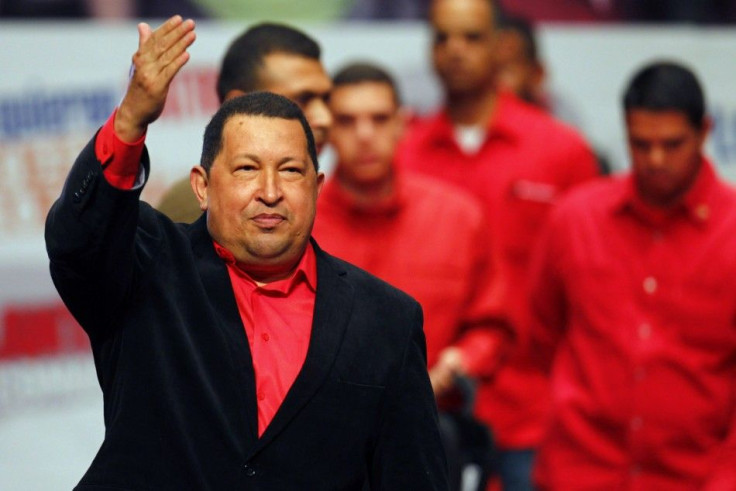Venezuelan President Chavez Flies to Cuba for Surgery

The President of Venezuela, Hugo Chavez, is expected to fly to Cuba on Friday to undergo surgery in the pelvic region where a cancerous tumor was previously removed in June of last year.
Chavez will be treated by the same doctors in Cuba who successfully removed a baseball sized tumor. This new growth measures two centimeters (one inch) in size. However, it has not yet been determined malignant, according to Chavez's announcement on Thursday.
Chavez revealed he had cancer in June of 2011. He never fully disclosed the specifics of his cancer, raising doubts about his political future. But after undergoing surgery and chemotherapy, he declared himself cancer-free in October.
However, with a new growth in the same area, there is strong evidence that Chavez's battle with cancer is not yet over.
Nobody can say right now that it is another malignant tumor, Chavez said, [but] the likelihood of malignancy is greater than the probability that it is not.
Nonetheless, Chavez made a live-television appearance from the Miraflores government palace on Thursday, encouraging his supporters that he would overcome his health problems.
I will live! I will live! Chavez reportedly shouted as he pounded a table.
Top doctors remain skeptical of a speedy recovery, however.
Dr. Demetrios Braddock, associate professor of pathology at Yale University's School of Medicine, told the Associated Press that a two-centimeter lesion isn't a small recurrence, that's a significant tumor.
Medical experts also question Chavez's decision to seek treatment in Cuba rather than the United States or Brazil, where surgeons and facilities are deemed more advanced.
If the cancer is standard -- that is, if it hasn't spread or is not rare -- then Cuba would come up to par with the appropriate standards of cancer care. On the other hand, if a cancerous tumor is rare, Chavez would have a better chance at overcoming cancer if he were treated in more advanced facilities with more cancer experts.
When you go to a place like Cuba or Brazil, even with all the development in Brazil, you find less people with enough knowledge to make good advice about what to do. That is where the concern about Chavez comes in - the concern that the knowledge is not at the same level, Doctor Julian Molina, oncologist at Mayo Clinic in Rochester, Minnesota, told the Washington Post.
A top cancer doctor of Latin America, Paulo Hoff, also told the Washington Post that a cancerous tumor in the pelvic region can be of four types: prostate, rectal, bladder, or sarcoma.
Latin American doctors believe that Chavez has sarcoma cancer because of a main symptom, that of the recurring tumor where another was previously surgically removed.
Given this is an election year in Venezuela, Chavez's health issues cast doubts on his re-election chances this October 7.
Chavez faces Henrique Capriles Radonski, governor of the Miranda state in Venezuela, of the Coalition for Democratic Unity (MUD).
© Copyright IBTimes 2024. All rights reserved.











